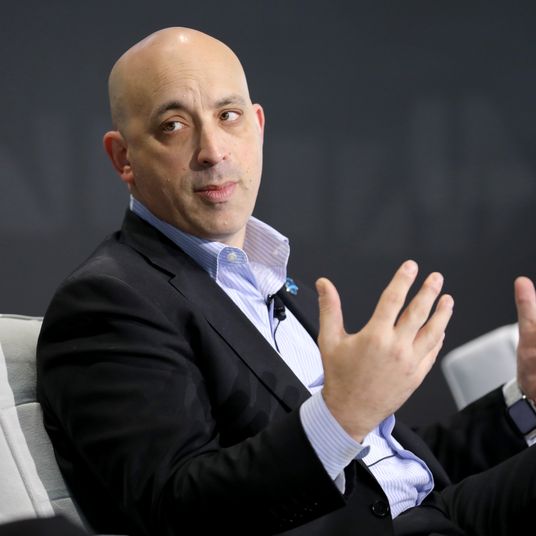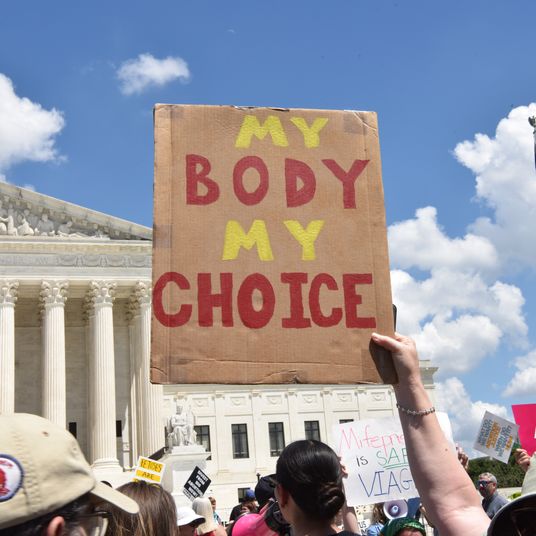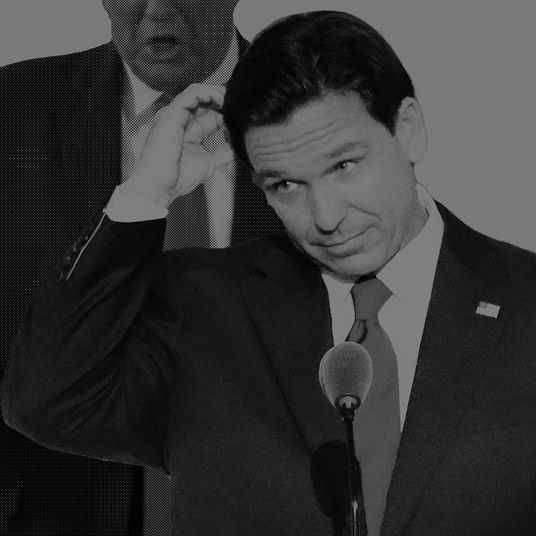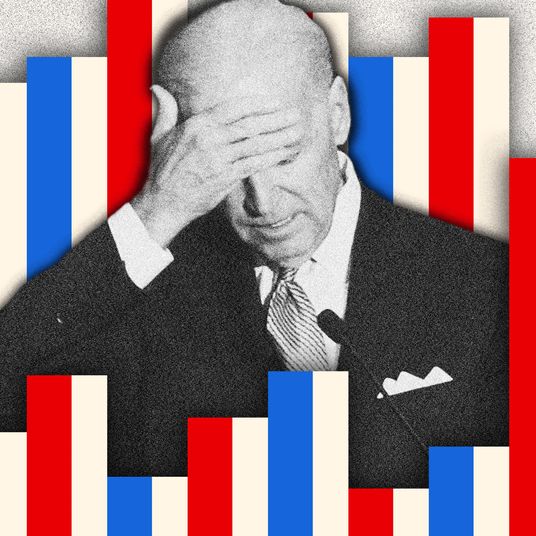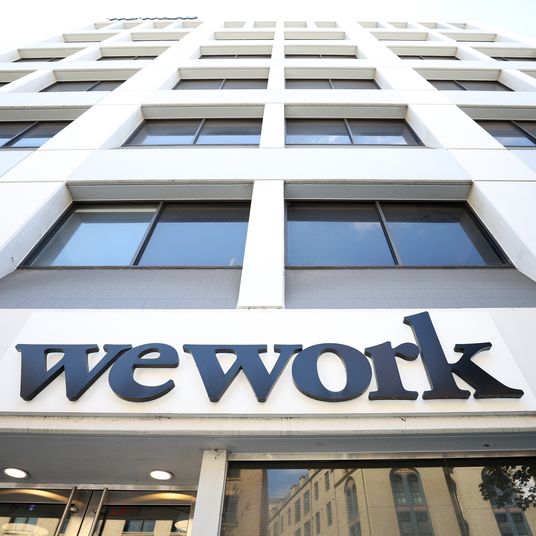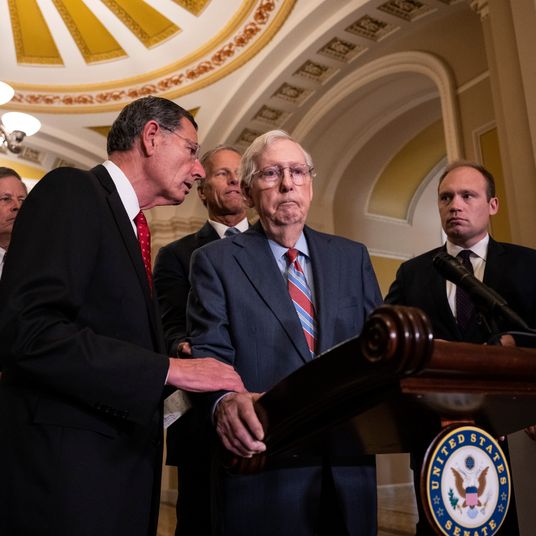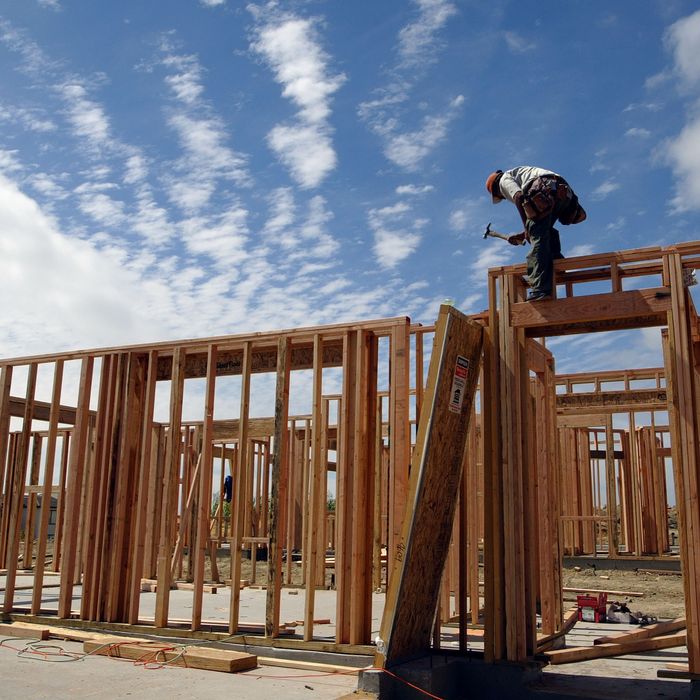
America has a lot of problems. Many of these demand policy solutions that unify progressive groups against corporate interests. For example, our nation’s distribution of income has grown grossly inequitable over the past half-century. The government could help rectify this by making it easier for workers to organize into unions, which give laborers more leverage over their bosses. Virtually every left-wing nonprofit and mass-membership organization in the country supports enhancing collective bargaining rights. Virtually every corporate lobby opposes it.
Progressive groups are similarly in lockstep behind redressing inequality through higher taxes on the superrich, increasing drug affordability by regulating pharmaceutical prices, and enhancing consumer welfare through antitrust enforcement, among myriad other causes.
But this basic dynamic doesn’t hold for all of our nation’s governance failures. Sometimes, the narrow interests of discrete progressive constituencies come into conflict with the general welfare. In other instances, outdated ideological presumptions can lead progressives to undermine their own interests through bad policy design.
Further, the superrich and corporate lobbies are not the only privileged segments of American society that fight to perpetuate inequitable systems that benefit them. Any individual upper-middle-class household exercises a negligible amount of power relative to Jeff Bezos. But because such households are exponentially more numerous than billionaires, they can constrain progressive reform as effectively (if not more so) than corporate fat cats. In recent years, Democrats at the state and federal levels have proven comfortable raising taxes on the superrich, but not on households that earn $300,000 a year. Meanwhile, among the biggest obstacles to the establishment of a remotely rational and just health-care system in the U.S. is the American Medical Association, which has an interest in sustaining the exceptionally high salaries of American doctors.
For progressives, tackling this latter set of problems can be ideologically and interpersonally uncomfortable. It is more congenial for us to agitate against antisocial corporate actors than our own myopic allies, to rebut reactionary dogmas than outdated liberal shibboleths, and to take on conservative billionaires than NIMBY homeowners, self-interested doctors, or tax-averse professionals. But if we are serious about achieving our goals, we can’t be allergic to criticizing sympathetic constituencies or ideologically appealing orthodoxies.
To an extent, this is what’s at issue in the debate over “supply-side liberalism.”
Supply-side liberals have called attention to various ways that the Democratic Party is failing to facilitate sufficient production of socially vital goods. For example, many states and cities where progressives enjoy considerable power have made it illegal to erect apartment buildings on much of their territory, even as they suffer from an acute shortage of housing units. This is not because corporate interests have bribed their governments. Rather, it is because (1) many affluent homeowners like living in class-segregated suburbs or neighborhoods, and restricting the availability of apartments is a handy tool for keeping away working-class people; (2) all kinds of incumbent residents have both a generalized aversion to neighborhood change and a specific fear of competition for parking spots and other amenities; and (3) many progressive groups that ostensibly exist to combat such classism and small-c conservatism have an ideological aversion to deregulation as an abstract concept.
Meanwhile, some deep-blue municipalities undermine core social programs by refusing to deny sympathetic interest groups’ requests for patronage. To take one infamous case, San Francisco requires supportive housing for the homeless to be built exclusively by small contractors, a bid to promote small business that comes at the cost of reducing the supply of shelter for the desperately needy.
At the federal level, congressional progressives have resisted attempts to reduce regulatory obstacles to the rapid deployment of clean energy, even as the existing rules make it impossible to meet America’s decarbonization goals. At the same time, many local environmental groups have exploited those rules to block green-energy infrastructure, in the name of conservation.
Commentators like Ezra Klein and myself look at these developments and conclude that progressives need to get more comfortable with ideologically uncongenial policy fights. A movement that is unwilling to prioritize the general welfare over allied interest groups’ myopic priorities — or to update its ideological presumptions in light of contrary evidence — will not be able to govern effectively.
But some progressives reject this analysis. In a recent column, the American Prospect’s David Dayen argues that “the challenges the country faces are all part of the same fight, a pitched battle against corporate power,” and that we “lose that fight the moment we deflect from it.”
In his account, supply-side liberals’ attempts to improve progressive governance and policy design are counterproductive. The fundamental cause of every single problem facing America is the contradiction between the innate sociopathy of profit-maximizing corporations and the best interests of consumers, workers, democracy, and the planet. Thus, anyone who diverts our collective attention from the struggle against corporate power — by, say, critiquing the pathologies of specific regulatory frameworks or the demands of any given progressive-aligned interest group — is abetting the enemy. “This country isn’t governed like a model U.N.,” Dayen writes. “It’s a knife fight, where who has power and what they’re doing with it overrules white papers about ideal efficiency.”
On these grounds, Dayen has decried supply-side liberals for suggesting that some individual labor unions can sometimes push for regulatory provisions that contradict the public interest. In his framing, such arguments are tantamount to saying that workers’ interests do not matter. Fidelity to organized labor as an abstraction takes precedence over critical thought about specific policies favored by specific unions. After all, the overriding imperative is to combat concentrated corporate power. Questions that divide the anti-corporate coalition must therefore be sidelined. Once the primary enemy is defeated, resolving these internal tensions will be easier, anyway.
As is already apparent, I find this outlook unpersuasive. Dayen is one of our ablest chroniclers of corporate malfeasance. And he is absolutely right that the profit motive and public good are in perpetual tension. But it simply is not the case that “concentrated corporate power” is the immediate obstacle to every progressive goal. And ignoring this reality actually makes it harder for liberals to build the power necessary for taming avaricious capital.
Sometimes, supporting workers means opposing the demands of particular unions.
A recent shift in California’s housing politics illustrate these points. The Golden State has one of the worst housing crises in the country. Its renters are more burdened by housing costs than those of any other state except Hawaii. This is no small part of why California has the highest rates of poverty and homelessness of any state in the union. It is also largely responsible for California’s recent population decline, which has still left it with a critical shortage of housing units.
Among the leading drivers of this shortage is restrictive zoning and onerous regulatory obstacles to development. Thanks to the California Environmental Quality Act (CEQA), the typical housing project in the state must survive three to four years of litigation in order to get built. This simultaneously throttles the speed with which the state can expand its housing stock and increases the cost of the units that ultimately get produced, since developers need to recoup the cost of their court fees. Thus, housing advocates have made establishing streamlined regulatory approval processes for new construction a priority.
The state’s building trades unions initially resisted such streamlining. In the past, these unions had used CEQA challenges as leverage to secure better terms from developers on construction projects. Left-wing housing advocates recognized the legitimacy of this concern. In response, they proposed pairing regulatory reform with a requirement that all streamlined projects pay workers the prevailing wage, which is to say, the going union rate for labor in a given area.
But the building trades were not content with this arrangement. Instead, they demanded that streamlined projects also be required to hire workers who graduated from apprenticeship programs that are generally run by the unions themselves. By making these concessions, Democratic lawmakers were able to secure the unions’ support and enact streamlining legislation in 2017.
Since then, it has become apparent that the union-trained worker requirement severely limits the policy’s impact on private-sector housing construction. This is because there aren’t enough union-trained workers to go around. The vast majority of California construction workers are not unionized and never attended an apprenticeship program. If streamlined projects were allowed to fully utilize this majority of laborers — so long as they were paid union-standard wages — then there would be more homes for California’s families and more good-paying jobs for its construction workers. Further, the more housing construction there is in the state, the more construction workers there will be, and thus, the more potential dues-paying members for the building trades to recruit.
It was therefore in the enlightened interests of renters, homebuyers, construction laborers writ large, and the trade union movement as a whole to drop the union-trained provision. And yet, it was also true that corporate interests (the developers) opposed the provision while labor unions supported it. If we accept Dayen’s premise that there is only one fight, and that fine-grained policy details matter less than the imperative to unify in opposition to corporate power, then progressives would have been duty-bound to acquiesce to the building trades’ position.
Of course, this would have been perverse. Just as the narrow interests of corporate shareholders can come into conflict with the common good, so too can those of individual unions. The building trades weren’t being irrational in insisting on the union-trained provision. From the standpoint of their existing members, securing exclusive access to streamlined construction jobs for union-trained workers made good sense. Construction workers suffered steep job losses during the 2009 recession and are understandably concerned with maximizing their employment security. Restricting competition for jobs through an apprenticeship requirement is plausibly in the existing membership’s immediate interest, even if it comes at the cost of constraining the union’s long-term growth.
Yet deferring to this interest would not only exacerbate California’s housing crisis; in the long run, it would also plausibly weaken the progressive coalition. From the standpoint of building countervailing power, it is much better to build a broader union movement than to safeguard the interests of incumbent unionists. Further, it surely cannot benefit the progressive movement to be associated with perennial failures of governance. When California’s liberal Democrats preside over worst-in-the-nation homelessness and poverty rates, such associations are inevitable.
As Rachel M. Cohen reports, California’s carpenters unions and its SEIU eventually recognized that the state’s workers writ large had an interest in expanding the availability of housing and well-paying construction jobs. They therefore endorsed legislation that stripped out the union-trained worker requirement for streamlined housing projects. As momentum built behind the legislation, the building trades withdrew their opposition.
It remains to be seen whether the new compromise between labor and housing advocates will achieve its aims. Requiring developers to pay union rates does increase project costs, thereby potentially limiting new construction. Yet ensuing fair compensation for construction workers — and preventing unionized workers from facing a competitive disadvantage from low-road employers — are core progressive goals. And it would be contrary to power-building to forfeit them.
Still, to simultaneously increase housing construction and that sector’s labor costs, progressives would be well-advised to eliminate any unnecessary expense-increasing regulations. For example, currently many California cities attach high “impact” fees to new housing in exchange for regulatory approval. If zeroing out those fees makes it possible to improve labor standards and housing affordability simultaneously, then lawmakers should do so. Regardless, liberals cannot finesse the tension between their housing and labor goals by focusing monomaniacally on opposing concentrated corporate power.
Preserving the climate may require loosening some environmental regulations.
Housing isn’t the only realm where reflexively deferring to progressive interest groups’ demands is antithetical to effective governance and power-building. As I’ve written elsewhere, some environmental organizations and legal practices are ideologically (and, in the latter’s case, arguably financially) invested in a regulatory regime that makes it very easy to obstruct new infrastructure with lawsuits. And yet, a permitting system biased toward stasis is one that is biased toward carbon energy. This is because America’s existing energy infrastructure is built around the capacities of fossil fuels. To secure a dominant share of electricity generation, renewables require gargantuan amounts of new infrastructure. To maintain their existing outsize share of the same, fossil fuels require almost none. This reality is reflected in the fact that, as of 2021, National Environmental Policy Act reviews were holding up twice as many green projects as fossil-fuel ones.
Dayen recognizes that the obstruction of clean-energy deployment is a problem. But he insists that this fact reflects the pathologies of corporate power rather than those of some environmental laws:
America’s clean-energy build-out is hampered by what is often characterized as organic, self-defeating NIMBY pushback to utility-scale solar and other renewables. But self-interested corporations play a major role. The difficulties of a transmission line in Maine to connect hydroelectric power from Quebec to customers across New England is linked to NextEra Energy, which has its own power station in the region and wants to maintain its dominance. The natural gas industry is waging a hidden PR campaign to maintain gas stoves. The fossil fuel–funded Caesar Rodney Institute has used astroturf groups to pursue lawsuits to block offshore wind development. The Texas Public Policy Foundation, a think tank funded by oil and gas companies, is doing the same thing. Random people who populate anti-renewable Facebook groups just coincidentally have bunches of fossil fuel money around them.
In light of these facts, Dayen argues that the problem lies less with the onerousness of NEPA’s approval process than with the power of fossil-fuel companies. After all, “the same interest groups” nefariously exploiting the existing rules “will be in the room when they’re rewritten.” Instead of clearing away red tape, Dayen counsels “breaking down the power of the incumbent firms and building up their competitors to equalize the influence.”
There are a couple of problems with this argument. First, although fossil-fuel interests absolutely take advantage of the fact that it is currently easy to tie up clean-energy development in court, they are by no means the only constituency that does this. NIMBY homeowners and conservation-minded environmental groups really are powerful opponents of clean energy. Second, there is no inherent contradiction between pursuing permitting reform and undermining the power of fossil-fuel firms. Indeed, supply-side liberals’ presumption is that even if the government eased the obstacles to energy construction across the board — giving no special preference for renewables — this would have the impact of increasing the market share (and thus power) of renewable producers relative to fossil-fuel firms in the long run, since the former need new infrastructure more than the latter.
The theory of change here is fairly straightforward: Individual fossil-fuel producers have a short-term interest in expediting specific pipeline and extraction projects and would be willing to undermine their industry’s long-term interest in obstructing renewable energy to secure regulatory relief. Given that Democrats are liable to need bipartisan buy-in to enact permitting reform, it is worth making concessions to Big Oil, so as to notch a regulatory playing field more favorable for carbon power’s more infrastructure-intensive competitors.
This analysis may be wrong. But it can’t be rebutted by pointing out the myriad ways that bad actors are exploiting the existing regulatory regime, or by proposing that progressives simply break down the power of fossil-fuel firms through some unspecified means.
Forcing the private sector’s activities into better alignment with the public’s priorities is fundamental to progressive politics. And building coalitions robust enough to counter the immense influence of wealthy shareholders and executives is indispensable to that project. But we don’t live in a cartoon world where the enemies of progress are forever and always loathsome fat cats. The interests of groups with broadly sympathetic goals can come into conflict with the common good. If progressives refuse to recognize this reality, they will be incapable of either realizing their policy goals or building the popular support necessary for combating corporate malfeasance.









